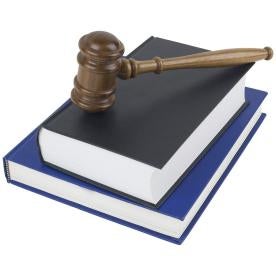CLOUD FARM ASSOCIATES LP v. VOLKSWAGEN GROUP OF AMERICA, INC., No. 2016-1448 (Fed. Cir. January 9, 2017) (non-precedential). On appeal from D. Del. Before Prost, Clevenger, and Reyna.
Procedural Posture: Plaintiff Cloud Farm filed a suit against Defendants alleging infringement of several patents directed to vehicular tilt control apparatuses. The parties stipulated that, if the district court’s claim constructions were not reversed or modified on appeal, some asserted claims are indefinite under 35 U.S.C. § 112, and Plaintiff could not prove infringement of any asserted claims. The district court adopted the stipulation and entered a final judgment of non-infringement and invalidity. Plaintiff appealed the district court’s construction of several claim terms. The CAFC affirmed the district court’s constructions and final judgment.
-
Claim Construction: The district court conducted two Markman hearings and construed multiple claim terms. In particular, the district court determined that the plain and ordinary meaning of both claim terms “seal” and “prevent” is “to stop.” The CAFC agreed, holding that the intrinsic evidence clearly supports such construction. With respect to a disputed means-plus function limitation “sensing means within said steering column,” the CAFC ruled that Plaintiff failed to propose an adequate structure during the Markman hearings at the district court. The CAFC found Plaintiff was therefore precluded from introducing new claim construction arguments on appeal or from altering the scope of the positions it took in the district court. Regarding the limitations “means for controlling” and “means for activating,” the CAFC agreed with the district court’s construction of the function and its finding that no corresponding structure exists. The CAFC explained that instead of identifying a disclosed algorithm, Plaintiff identified only an output of an algorithm. In other words, the CAFC stated, the patent offers the ends but not the means, which is not sufficient structure. The parties stipulated that, under these constructions of the district court – affirmed by the CAFC – several claims are invalid as indefinite and the accused devices do not infringe because they do not perform several stopping Because the CAFC agreed with the district court’s constructions, it affirmed the final judgment of non-infringement and invalidity.





 i
i

